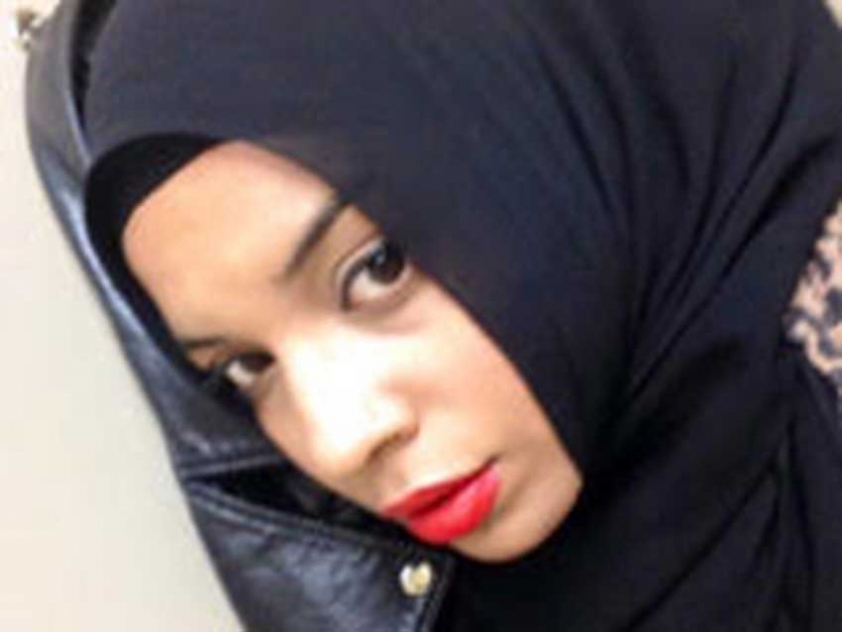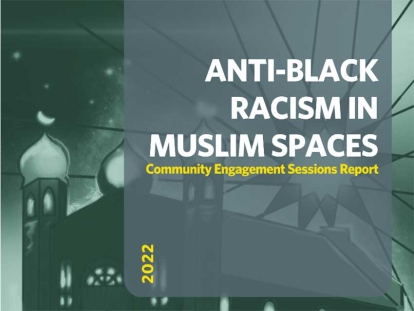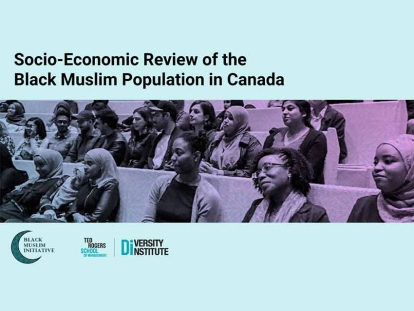 Key Ballah is a Toronto-based Black Muslim Canadian Spoken Word poet.
Courtesy of Key Ballah
Key Ballah is a Toronto-based Black Muslim Canadian Spoken Word poet.
Courtesy of Key Ballah
Dec
How to Start Combating Anti-Blackness in the Canadian Ummah
Written by Key BallahRecently, Black Muslim Canadian Spoken Word poet Key Ballah wrote a piece for Love, Inshallah about her experience in a predominantly Pakistani mosque in Toronto where she was interrupted during prayer and told that “This is an Urdu-speaking mosque” and “There is another mosque where you can go not too far from here. There are more people like you there.” In the piece, she reflected on the need to honestly and openly address anti-Black racism in the Canadian Muslim community. Muslim Link invited Key to speak more in depth about what she thinks needs to be done to address anti-Black racism.
*******
I want to iterate that I am writing this from a place of love. I think when we do this work it is often read as angry and antagonistic. The truth is that my love for Islam is what drives me to be vocal about the oppression that I and other Black Muslims face within the confines of our ummah (global Muslim community). I believe that as an ummah we have to constantly work at being better, and creating space for these dialogues, or questions or critiques to happen. I know that as Muslims we are under constant fire and that our current geopolitical climate is not one that makes us feel safe or welcome in this world.
I understand that perhaps we live our lives on the defensive, and to hear people within our own communities pointing fingers at each other and using words like racism and anti-Blackness, when there is so much that we already have to explain, correct, and convince people of, dealing with this seems like too much. But this is necessary. We must address the things that are tearing the ummah apart from the inside so that we can stand together as a unified front against the bigotry and islamophobia being perpetuated at us from places of hate and misunderstanding.
Racism, bigotry, and anti-Blackness are things that do not belong in the Ummah of our Prophet (Peace Be Upon Him).
Besides reading the Hadith that talk about the Prophet warning us about the dangers and evils of tribalism and racism and reading the Qur’an for clarification on Allah’s stance on oppression, I have been thinking a lot about what we can do as an ummah, and as smaller communities within the ummah, to combat racism and anti-Blackness.
Dictionary.com defines anti-Blackness as being “resistant or antagonistic to black people or their values.” And I would add that it is resisting Blackness, because of the ways in which you ascribe to colonial constructs of what humanity is and who is deserving of it, what beauty is and who sets the standard, as well as what and who is valuable. If we look at anti-Blackness in terms of a hierarchy pyramid, it is the belief that Blackness belongs at the bottom and whiteness belongs at the top. This means that all White and non-Black people of colour who ascribe to this ideology are exhibiting anti-Black behavior, whether consciously or subconsciously.
After my last article for Love Inshallah entitled “People Like Me”, I received an influx of emails and messages from Muslims shocked and appalled at my experiences. Many of them asked, “Is this true, did you really experience these things?” others said, “I had no idea that these things actually happened!?” Then, on the other hand, there were Muslims thanking me for sharing their stories, for shedding light on a problem that often feels invisible. One sister shared a story with me, where she was literally asked to leave the masjid because she was a new convert who didn’t know how to pray, and they assumed that she was from the Nation of Islam because she was Black. A brother told me that he was told straight up that he wasn’t allowed to marry someone’s daughter because he was Black. These experiences with my last article speak loudly to the need for dialogue and a need for storytelling.
Create the Space for Black Muslims to Share Their Experiences
I believe that individual Muslims, Masjids, Muslim community centers, Muslim community groups, and Muslim Students Associations (MSAs), need to create space for these conversations to be had in a legitimate way. This means making room, it means reaching out to Black Muslim communities to make sure they are at the table, it means asking them how they can be better served and listened to, it means giving Black Muslim women opportunities to be heard, it means facilitating conversations that do not allow Black Muslim voices to be drowned out by non-Black “allies” who derail conversations by trying to change or disrupt the narrative with their point of view.
The East African Students Association at Ryerson University in Toronto recently put together a panel called #BlackinMSA. It was a space where Black Muslims, non-Black Muslims and Non-Muslims could come together and hear stories from Black Muslims about their experiences and their insights on how to combat anti-Black racism in Muslim spaces, specifically the MSA.
Spaces like these allow for discussion; they allow for stories to be heard that are often buried or discarded. When we are able to put everything on the table we are able to make apologies, concessions and move forward. The spaces allow Black Muslims to be honest and open with the oppression they are experiencing, it requires that people are held accountable. When nothing is swept under the carpet, when things are in the air, things change, because they must.
The hashtag #BlackinMSA is full of stories of Black Muslim experiences in academia, specifically in Muslim Student Associations in the “West”. We need to support these dialogues, we need to encourage them, and we need to listen and take notes. We need to not try to derail them by questioning their validity or necessity, but we need to hear what is happening, and identify where we as Muslims can change the narrative for the next generation of Muslims. We need to be sure that we are diligent in calling out and correcting aunties and uncles who make racist and Anti-Black statements in public and in our homes.
Make the Boards and Executives of Masjids, Muslim Organizations, and MSAs Equitable Spaces
I also believe that we need to ensure that our Masjid boards, our Muslim organization boards, and our MSA executives are equitable spaces, where the multiplicities of Muslim identities are represented. There needs to be a zero tolerance policy for Racism and anti-Blackness put in place in the codes of conduct of Masjids, MSAs, and Muslim organizations. We need to also be sure that our khutbas (religious sermons) and Masjid conversations address these issues head on, without dancing around the subject.
It is also important to consider having our MSA, Masjid, and Muslim organization leaders go through anti-Racism, anti-Oppression or Equity and Inclusion training because we are susceptible to our biases, and this kind of training would give them tools to negotiate with their biases, so that they do work that represents the ummah as a whole.
I believe that as Black Muslims we must be very frank about our experiences with racism in the ummah, that we must make spaces for ourselves if no one is willing to make spaces for us. However, I also believe deeply in community in the way that our beautiful Prophet intended it to be. I understand that we will never be perfect, but we can change the way our children experience and view each other. We can maneuver this world as best as we can, causing as little harm, oppressing as few people as we possibly can.
The beauty in all of this is that we have a religion, a deen that holds us to the standards of being a community that sheds the oppression that this life gives birth to; a path of love and kindness and multiplicity. Islam is a template for goodness, and kindness and anti-oppressive"ness”, so come, let us use it.
Key Ballah is a Black Muslim Canadian Spoken Word poet living in Toronto. She is the author of the book of poetry Preparing My Daughter For Rain:: notes on how to heal and survive available on Amazon. You can follow her on Twitter here and visit her website here.
This article was produced exclusively for Muslim Link and should not be copied without prior permission from the site. For permission, please write to info@muslimlink.ca.












